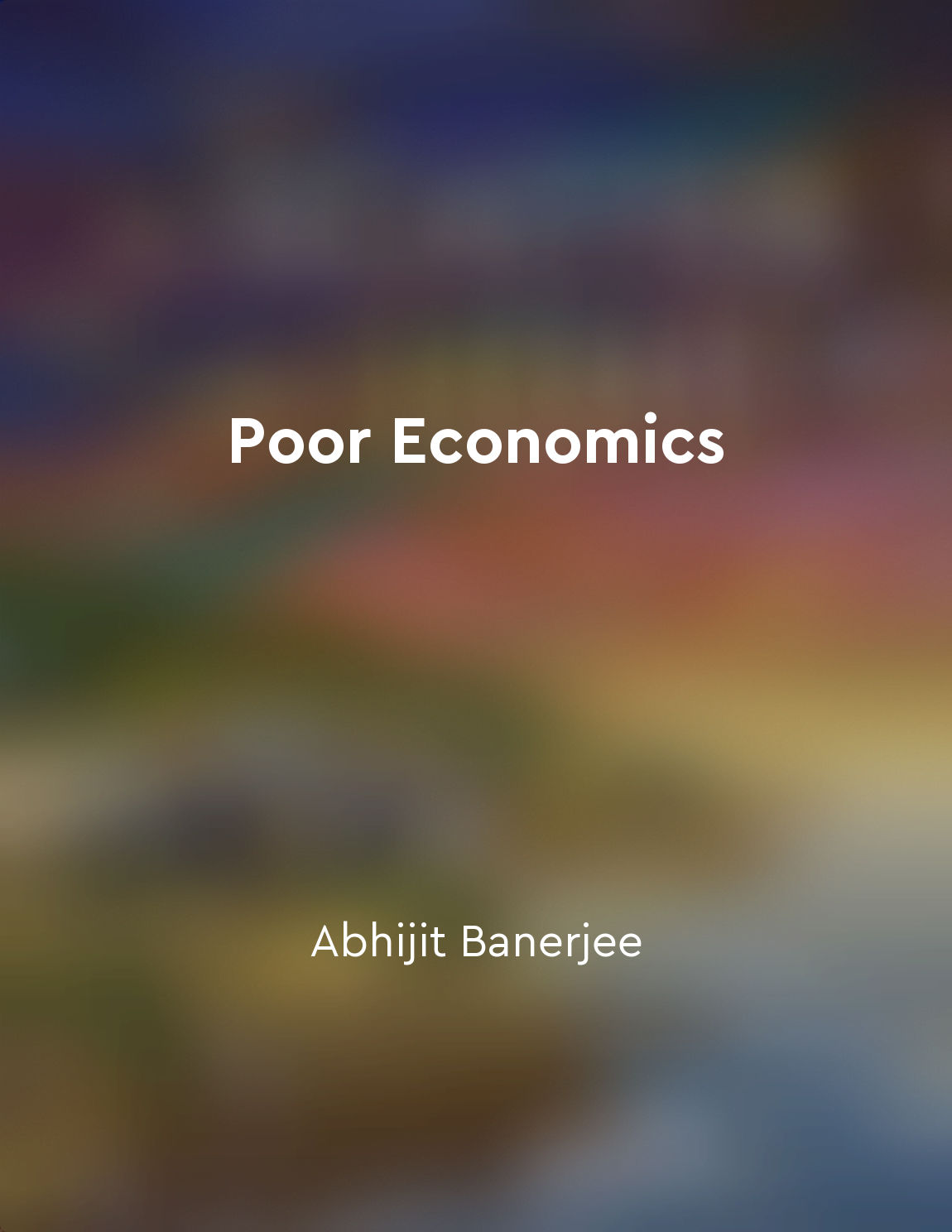Aid programs should be evidencebased from "summary" of Poor Economics by Abhijit Banerjee,Esther Duflo
The idea that aid programs should be evidence-based is not just a catchy slogan; it is a fundamental principle that should guide all efforts to alleviate poverty. This means that decisions about which programs to fund and how to design them should be based on rigorous evidence of what works and what doesn't. Too often, aid programs are implemented based on assumptions or ideology rather than empirical evidence. This can lead to wasted resources, ineffective programs, and even harm to the very people they are meant to help. By conducting randomized controlled trials and other rigorous evaluations, we can gather the evidence needed to determine which interventions are most effective in reducing poverty. This evidence can then be used to inform policy decisions and allocate resources in a way that maximizes impact. Of course, evidence alone is not enough. It must be combined with careful analysis and interpretation to ensure that the right lessons are drawn from the data. This requires a commitment to transparency, openness to new ideas, and a willingness to learn from both successes and failures.- The goal of evidence-based aid programs is not just to do good, but to do the most good possible with the resources available. By prioritizing evidence over ideology, we can ensure that our efforts to fight poverty are as effective and efficient as possible.


